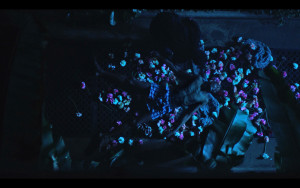
Screening
Artist Amartey Golding screens his three Chainmail films with a live conversation of family & friends
, –
Amartey Golding screens his three “Chainmail” films, with a conversation with his mentor Darren Anthony Kane Gayle, Dancer Solomon Golding & Assistant Curator Katherine Finerty
Amartey Golding’s practice is centred around a sincere demand to be self-implicating. He views his work, from process to experience to outcome, as a portal through which to be honest and multi-dimensional. This entails holding oneself and the communities they identify with to account, and allowing oneself to be self-critical whilst refusing labels: to act and be represented how you want to be. To achieve this Golding creates work that simultaneously brings people together and creates new rituals: fictional subcultures that become reality.
We witness this ideological method most strongly in the artist’s Chainmail film series exploring the human condition through the experiences of black British men. These groups gather to activate Golding’s decadent and heavy chainmail in rich environments that transform from fantasy into reality before our eyes. And finally, given the lived experiences of creating these works – from individual performers testing their physical endurance under the weight of these handmade sculptures, to surrounding participants forging a new community and sense of mutual respect – there are always real-life consequences.
Golding started creating this series, funded by the Arts Council, in 2016 after two of his godson’s friends were violently murdered in quick succession. Upon reflecting on the cultures imposed on him and his peers, he sought to challenge the idea that stereotypes are timeless and instead embraced the idea that they are not only constructed, but up for being dismantled and superseded by self-implicating representations of what people need and who they want to be. We first enter this realm in Chainmail I, where the artist’s brother Solomon (the first black British male dancer to join the Royal Ballet Company) encounters a group of men and activates the chainmail – an item that both preserves life and facilitates death, renders you at once as ‘aggressor’ and ‘victim’, sets you free yet leads to imprisonment.
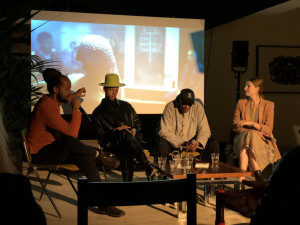
This programme takes place within Theaster Gates’s installation Black Image Corporation presented by Prada, The Vinyl Factory, and The Showroom. Collective Intimacy is inspired by Gates’s ethos of collaboration and The Showroom’s commitment to togetherness and communal knowledge, taking on multiple trans-located narratives of the current Black experience as a point of departure for a cosmopolitan worldview. In response to Gates’s reactivated spaces in Chicago and how his socially engaged projects enable communities to connect and grow, Collective Intimacy aims to create a new space for people to gather, listen, converse, and contemplate amongst a fusion of art, design, music, and everyday life.
Black Image Corporation presents distinct spaces creating a myriad of possibilities for collective engagements, featuring an installation of Gates’s art objects, furnishings, and new films that capture the methodologies of urban renewal and community activation founding his practice. Pieces from Chicago imbued with powerful histories, uses, and localities resonate with distinctive lounge design from here in London – like a love letter between two cities, under the roof of a new House. Taking place at both 180 The Strand and The Showroom, Collective Intimacy hosts interdisciplinary interventions by artists, musicians, designers, writers, thinkers, collectives and members of the public, who are all invited to distort notions of selfhood and togetherness in the spirit of creating a global community.
Related

Event
“Collective Intimacy” Saturday 19 October at 180 The Strand
, –

Event
Collective Intimacy at 180 The Strand
, –

Event
Artist Collective Sxwks presents an afternoon of music and poetry
, –

Event
‘Sospiro’ by Nephertiti Oboshie Schandorf
, –

Performance
Belinda Zhawi performs “South X South East” poetry & sound set
, –

Event
Phoebe Boswell’s performance ‘Mothering Memory’
, –

Performance
Larry Achiampong’s performance, video & DJ set with Phoebe Collings-James
, –
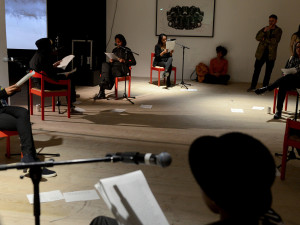
Event
Artist Phoebe Boswell presents ‘The Lighthouse 1’
, –

Event
Singer Bumi Thomas: ‘Border Native’ live music performance
, –

Performance
Singer Bumi Thomas presents Border Native, a live music performance
, –
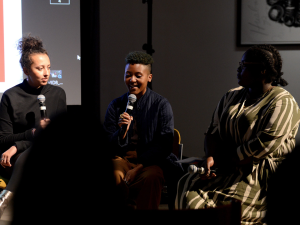
Event
Thick/er Black Lines present a screening of Black British Women/Femme Filmmakers
, –
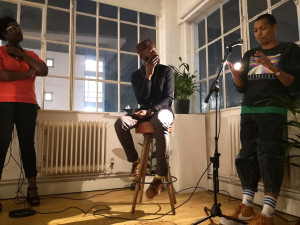
Performance
“Collective Intimacy” at The Showroom: Helen Cammock & Inua Ellams
, –

Talk
Poet Julianknxx screens “Roots For A Crown” with a talk and performance
, –

Performance
Phoebe Boswell’s group performance: The Lighthouse 2
, –
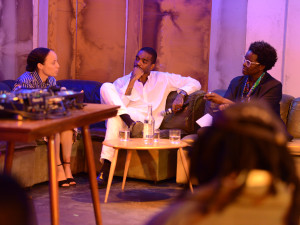
Event
Designers Grace Wales Bonner & Samuel Ross in Conversation with Curator Elvira Dyangani Ose
, –
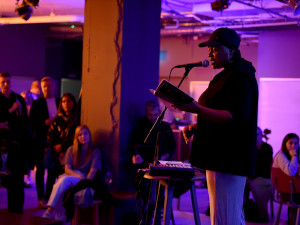
Event
Poet Belinda Zhawi presents a poetry and sound set
, –
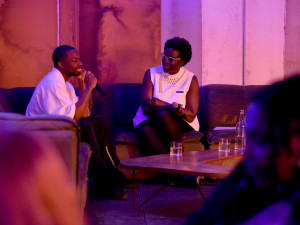
Event
Designer Dozie Kanu in conversation with curator Elvira Dyangani Ose
, –

Talk
Designer Rose Nordin presents OOMK’s collaborative publishing practice
, –
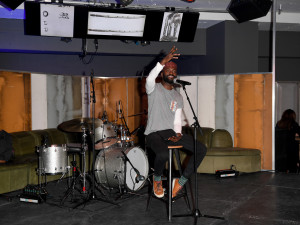
Event
Performance by Poet Inua Ellams
, –
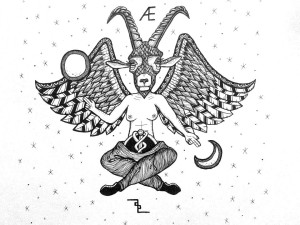
Event
Poet & Musician James Massiah presents a new performance, ‘Purgatory’
, –

Performance
Larry Amponsah & Andrew Hart present a sonorous performance “Led in Strange Ways”
, –
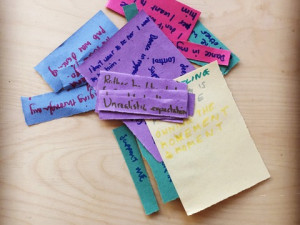
Event
Beverley Bennett’s “Simon Says/Dadda”
, –
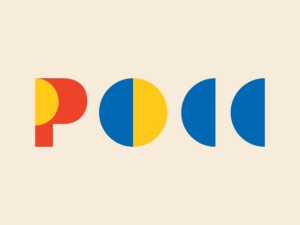
Event
Collective Intimacy at The Showroom: POCC’s Screening and Q&A
, –

Screening
POCC presents a screening and Q&A
, –
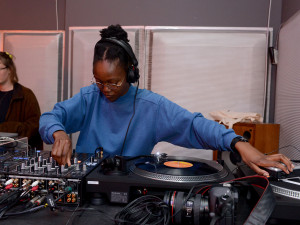
Event
Artist Simnikiwe Buhlungu hosts a sound session
, –

Screening
Project O screen their video “Saved”
, –

Event
Project O screen their video “Saved”
, –
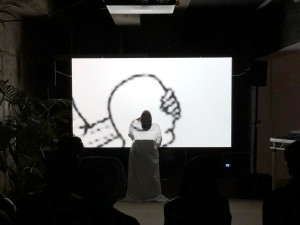
Event
‘In Movement II’ with Dancer Zinzi Minott & Filmmaker DJ Rabz Lansiquot
, –

Event
A BANTUTRONIC Conversation & Live Music
, –

Event
Cultural Anthology POSTSCRIPT & Friends on Narratives of the Black Experience
, –
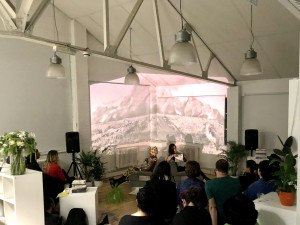
Exhibition
Collective Intimacy – A Live Programme
–

Video
‘A Proper Burial Finally, Thanks America!’ by Tremaine Emory, in conversation with Theaster Gates and Elvira Dyangani Ose